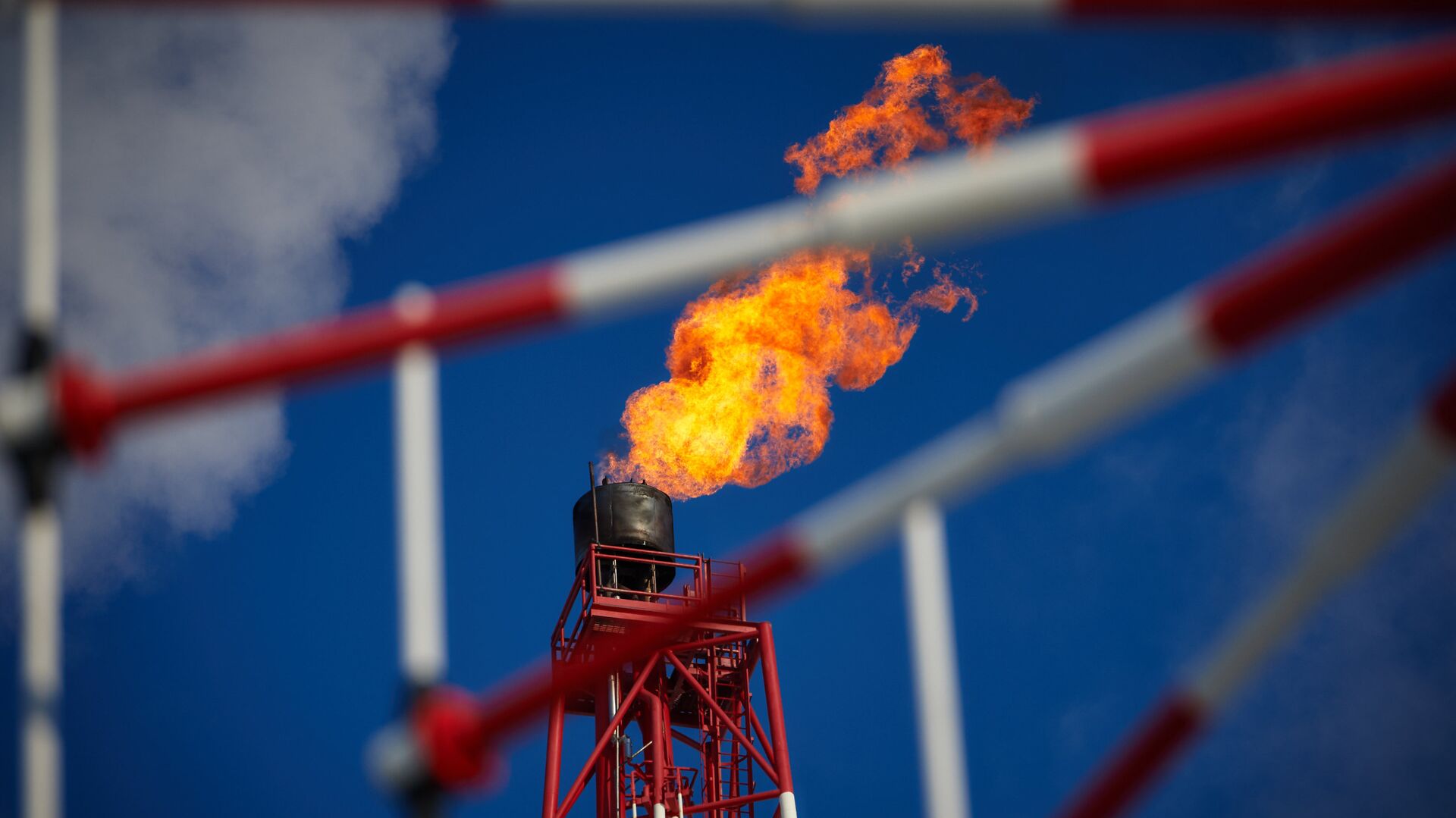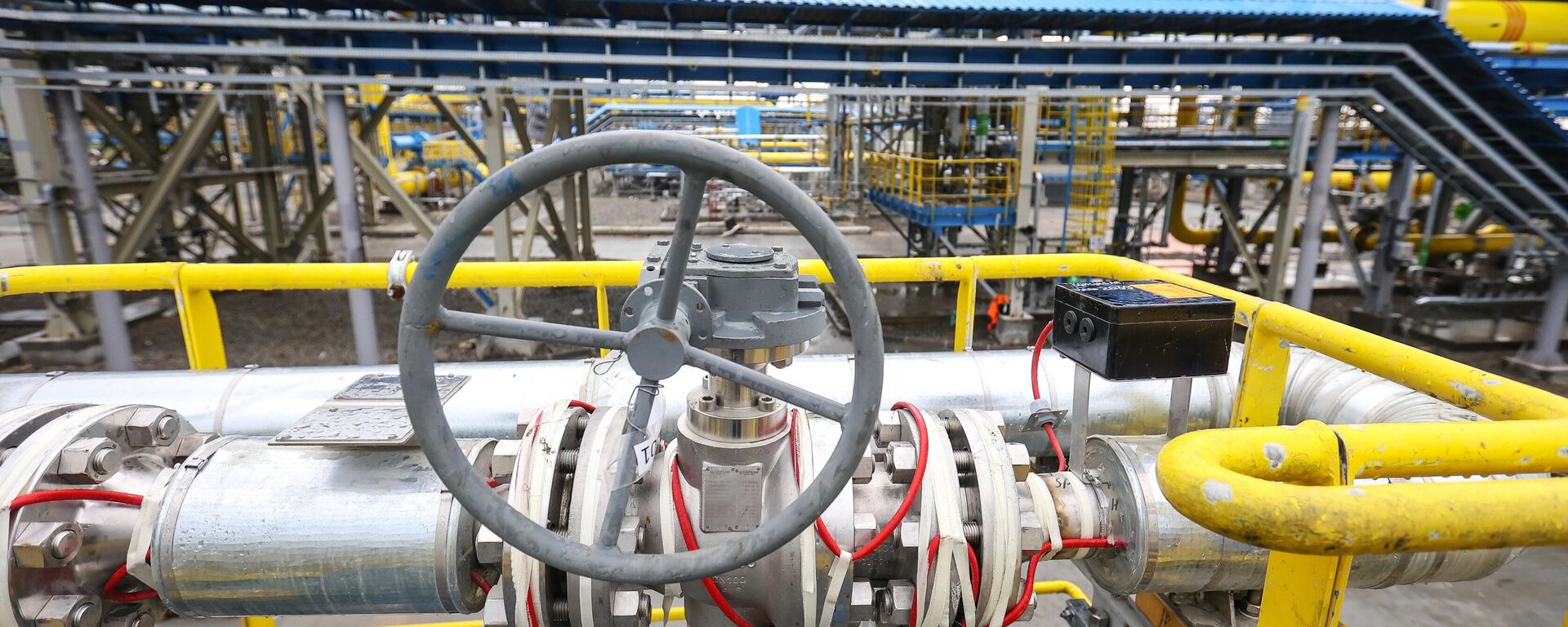Austria, Hungary Say No Substitute to Russian Gas as Germany’s BASF Warns of Worst Crisis Since WWII
10:23 GMT 01.04.2022 (Updated: 12:36 GMT 01.04.2022)

© Sputnik / Alexei Danichev
/ Subscribe
President Putin signed a decree on Thursday ordering countries which have slapped sanctions on Russia to pay for natural gas in rubles starting Friday. The ultimatum split Europe, with the EU’s G7 members publicly vowing not to pay, while privately, some, including Germany, have inquired about how such the payment system would operate.
Officials in Austria and Hungary say there’s no alternative to Russian natural gas, with Budapest stressing that more costly American-sourced LNG is not a realistic substitute.
“Replacing cheap Russian gas with expensive American gas” is an “absurd” proposal, Hungarian Prime Minister Viktor Orban told Kossuth Radio on Friday.
“It’s not that we’ll put on an extra sweater in the evening and turn the heating down a little or paying a few extra forints for gas. The fact is that if energy supplies don’t come from Russia there won’t be any energy in Hungary,” Orban stressed.
The politician noted that 85 percent of Hungary’s gas supplies and 64 percent of the country’s oil comes from Russia, and that geography puts limits on Budapest’s ability to diversify its sources of energy.
Austrian energy giant OMV CEO Alfred Stern echoed Orban’s concerns, saying that there was no LNG alternative for Austria.
“Giving up on Russian gas is impossible unless we are willing to live with the massive consequences of such a step. Some countries can do that. It cannot be implemented by Austria this year…As a landlocked country, we don’t have access to LNG. Any diversification would mean investing in more expensive infrastructure to get access to more expensive gas. A phase-out of Russian gas comes at a price. This must be clear to us,” Stern said, speaking to Die Presse on Friday.
‘Worst Crisis Since WWII’
Austria’s neighbour Germany, whose leaders have so far publicly refused to be “blackmailed” into paying for Russia’s gas in rubles, while privately inquiring about how such ruble payments could be made, is facing a similar dilemma, with Berlin activating an emergency plan to cope with supply disruptions and preparing to institute gas rationing. Russian deliveries made up 55 percent of the European industrial giant’s gas consumption in 2021, with Germany’s underground gas storage tanks down to 25 percent of capacity this week.
Martin Brudermuller, CEO of German chemicals giant BASF, has characterised Berlin’s plans to boycott ruble-priced gas as a “highly irresponsible experiment,” and stressed that Germans underestimate the true risks of such a step.
“Do we want to destroy our entire economy with our eyes wide open? Destroy everything we have been creating for decades?” Brudermuller asked in an interview with FAZ on Thursday. Cutting off gas, the businessman said, “could lead to the worst crisis for the German economy since the end of World War II.”
Moscow’s push to have ‘unfriendly states’ –i.e. those that have introduced crushing sanctions against Russia over the crisis in Ukraine, followed the moves by the EU and the US to freeze some $300 billion in Russian reserves trapped abroad.
President Putin announced the ‘rubles-for-gas’ scheme last week, giving the central bank, the relevant government agencies and Gazprom time to prepare, and signed a decree on the matter on Thursday. The text of the decree has been published, and provides detailed instructions on how the ruble payments can be made.


